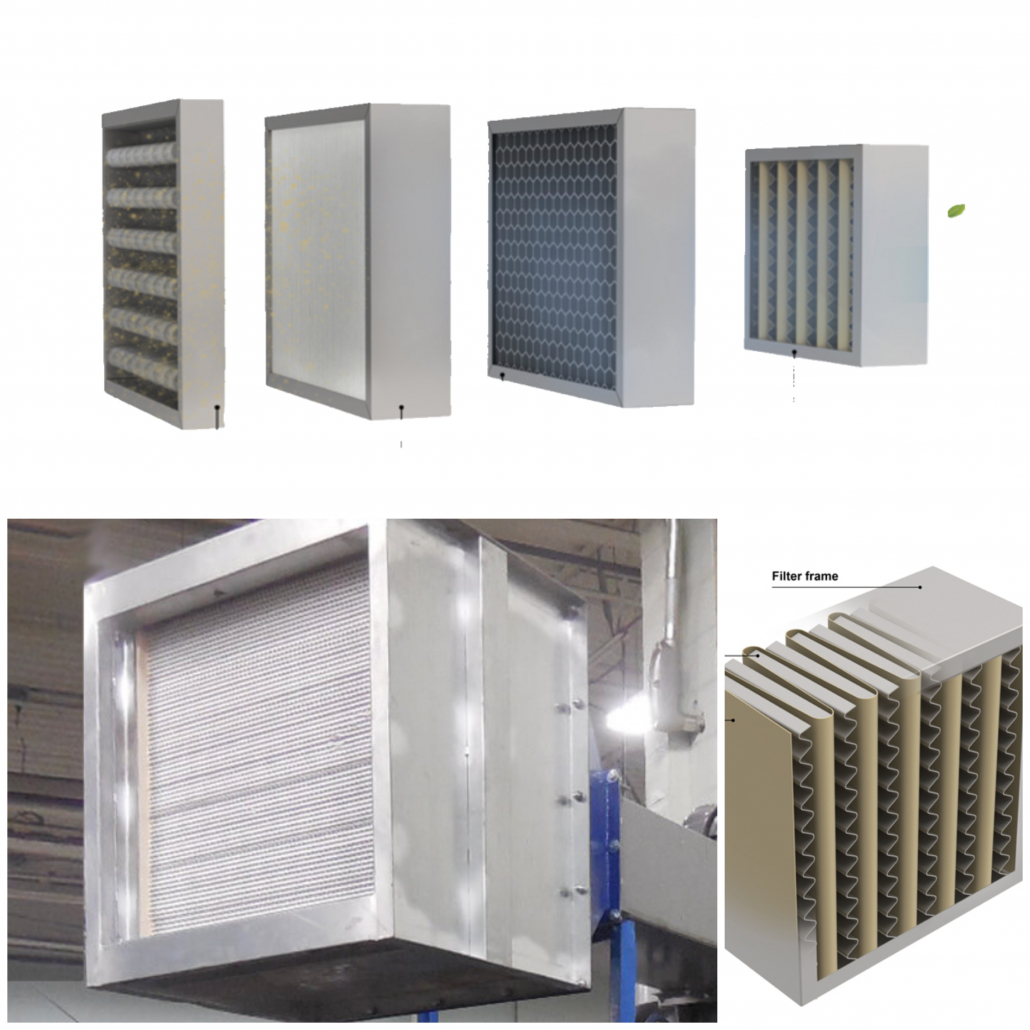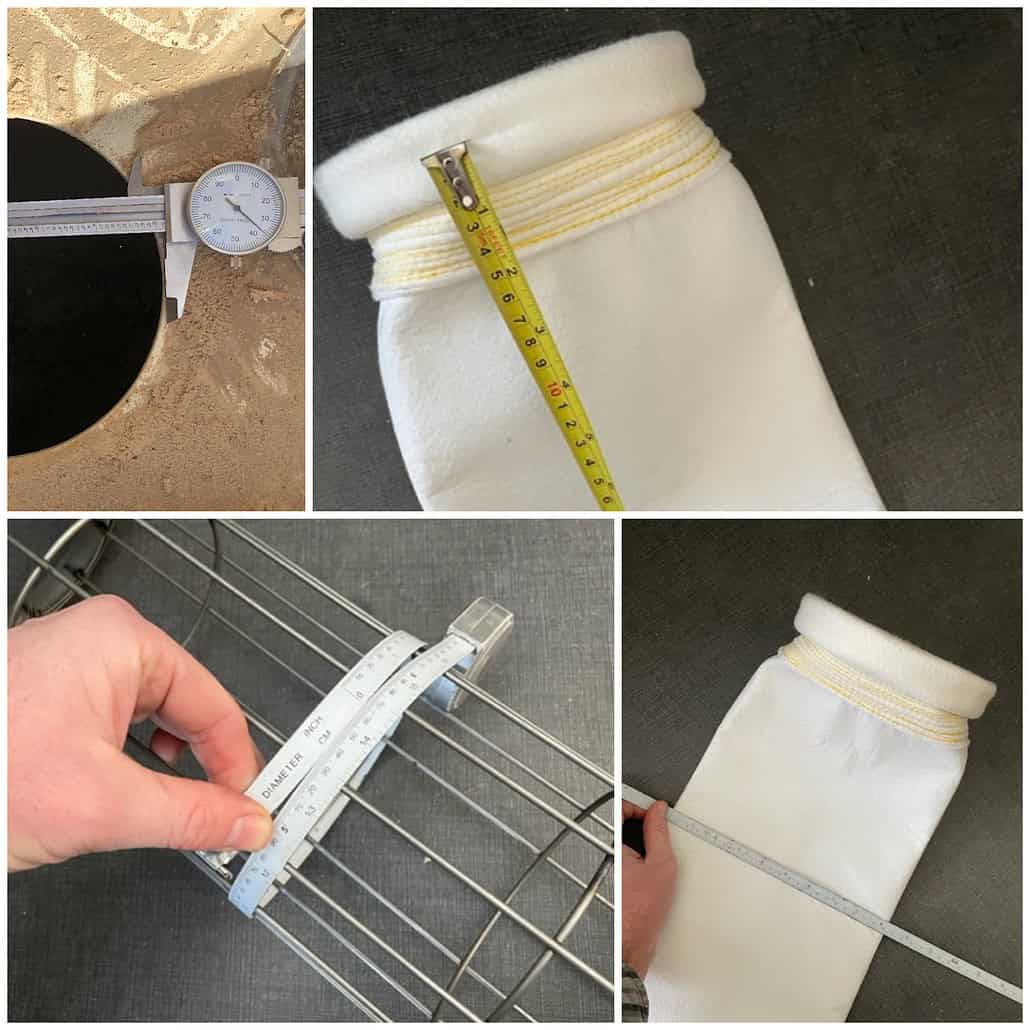Environmental groups claim the 1625 MW coal-fired plant in La Grange, Texas is exceeding PM2.5 emissions limits due to outdated dust collectors and poor operating practices.
July 20, 2012 Baghouse.com News | Environmental groups in Texas are suing one of the largest coal-fire power plants in the state, alleging the plant is violating its air pollution permits and emitting excess dust pollution. The Fayette Power Project located in La Grange, Texas, a 1,625 megawatt power plant located about 60 miles west of the state capital of Austin was served a notice of intent by the Environmental Integrity Project (EIP).
Excessive emissions often occur when plant operators fail to stay within require operating parameters (e.g. running the system to hot thus causing damage to the filter bags, placing too large of a load on the baghouse, etc.) or when they are using out-of-date equipment that is well past its recommended service life.
The EIP alleges LCRA (Lower Colorado River Authority the majority owner and operator of the plant) is in violation of its air pollution permits from the Texas Commission on Environmental Quality (TCEQ), specifically the limits on particulate matter (PM2.5), claiming that the plant uses antiquated electrostatic precipitators for dust collection instead of newer, more efficient baghouse filters.
The EIP, which is representing the Texas Campaign for the Environment and other environmental groups, previously filed six claims against LCRA, two were withdrawn, three others were dismissed by the courts, leaving only this issue to continue to the discovery phase in a Houston federal court. LCRA says that claim “involves unfounded allegations” and the costs of the suit “will eventually be passed on to ratepayers.”
“We’ve discovered what we believe are egregious violations of the air pollution permit for the power plant and that harms public health, pollutes the air that we all breath,” said Ilan Levin, the Associate Director of Environmental Integrity Project.
LCRA General Manager Becky Motal flatly denied the charges, and claims the environmental groups are harassing them despite being “one of cleanest coal-fired plants in Texas”. “This notice of intent to file yet another lawsuit with similar allegations as in a previous suit is completely unwarranted and harassing,” Motal said in a press release after they learned of the suit. “FPP [Fayette Power Project] is one of the cleanest and most efficiently operated coal plants in Texas, and I am proud of the conscientious, environmentally responsible work our employees do providing electricity to more than a million people in Central Texas.”
Texas Vs. The EPA – The Origins of the Battle
Currently, the Fayette plant operates under what is known as a “flexible permit”. meaning it allows for exceeding emissions levels in certain areas if they are made up for by better than required performance in other areas. The flexible permits are issued by the Texas Commission on Environmental Quality, the state agency charged with regulating and enforcing environmental laws in Texas. The EPA (the federal agency with ultimate authority over environmental law in the US) ruled several years ago that the flexible permits did not meet federal standards and were illegal. The situation between the EPA and the TCEQ plays a part in the case against LCRA.
Environmental groups are suing the Fayette Power Project located in LaGrange, Texas saying it violates its air permits, and needs to install new air pollution control equipment, including new more efficient baghouse filter systems to replace older, less efficient ESPs.
According to Ilan Levin the Associate Director of Environmental Integrity Project, the LCRA is in the process of obtaining a new permit to increase levels for particulate matter emissions from the state board. “We are trying to enforce the permit that is currently on the books,” he says. “Now EPA has already ruled that those flexible permits are illegal — that they don’t meet federal standards. And we agree with that. But nonetheless that’s the permit they have. And what we’ve found is that they’re not even meeting the limits in that awful flexible permit.”
In response Motal of LCRA said “FPP complies with all permit limits, and in most cases emissions are well below levels set by federal and state authorities. The authority says that the plant “has long been recognized as one of the cleanest coal-burning power plants in the state.”
ESPs vs. Baghouses – “Outdated ESPs not working very well”
In March 2011, the plant installed air scrubbers on Unites 1 and 2 at a cost of about $400 million. LCRA and its partner Austin Energy (which jointly owns Unites 1 and 2 with LCRA) says the air scrubbers now remove more than 95% of sulfur dioxide emissions. Prior to this local farmers accused the plant of contributing to the degradation of their surrounding farm land due to acid rain caused by the plant’s SO2 emissions. *
While environmentalists welcome the installation of the SO2 scrubbers, they believe the plant needs to do more regarding particulate matter (PM2.5 dust particles 2.5 microns in size and larger) emissions, which are linked to asthma, heart disease, premature death, and other respiratory conditions. The core of the current lawsuit claims the plant exceeded federal limits for PM2.5.
They say the plant needs to replace its outdated ESPs with newer, more efficient baghouse filter systems. “The LCRA Fayette Power Plant doesn’t have baghouses,” Levin says. “Instead they’ve got thirty-year old electrostatic precipitators or ESPs and those aren’t working very well. In fact, what we’ve found is that the really high levels of particulate matter pollution are happening when they start those coal-fired boilers up. And they are often in start-up mode for hundreds of hours per year.” Levins says that the LCRA doesn’t turn on their pollution controls that would capture particulate matter during those start-ups. “And so during start-up, the public is exposed to excessive and very dangerous levels of soot or particle pollution,” he says.
Today, filters (commonly known as baghouses or fabric filters) are used by plants to prevent the escape of particulate matter from their stacks. these are help in most opinions to be more efficiency than ESPs, which use electrodes to charge incoming dirty air that then passes by large electromagnetic plates that collect the charged dirt particles.
No Amicable Settlement in Sight
While both sides claim to be working to ensure a clean source of electricity for the surrounding area, it does not seem likely that the two parties will work things out by themselves. “The answer to the question ‘Why now?’ is that we feel like we have no choice. We’ve been talking to LCRA or trying to talk to LCRA for a couple of years,” Levin says. “We haven’t made any headway. We’re only bringing this lawsuit because the state regulators and the federal regulators, that is to say the Texas Commission on Environmental Quality and the EPA, are not enforcing the law.”
About The Author:
| Dominick DalSanto is an Author & Environmental Technologies Expert, specializing in baghouse filter systems. With nearly a decade of hands-on working experience in the industry, Dominick’s knowledge of the industry goes beyond a mere classroom education. He is currently serving as Online Marketing Director & Content Manager at Baghouse.com. His articles have been published not only on Baghouse.com , but also on other industry related blogs and sites. In his spare time, Dominick writes about travel and life abroad for various travel sites and blogs. Born in San Bernardino county California, raised in Chicago Illinois, he currently resides in Buenos Aires, Argentina.
Footnotes:
* See Article Pecan Growers Blame Coal-Fired Plant For Killing Crops






